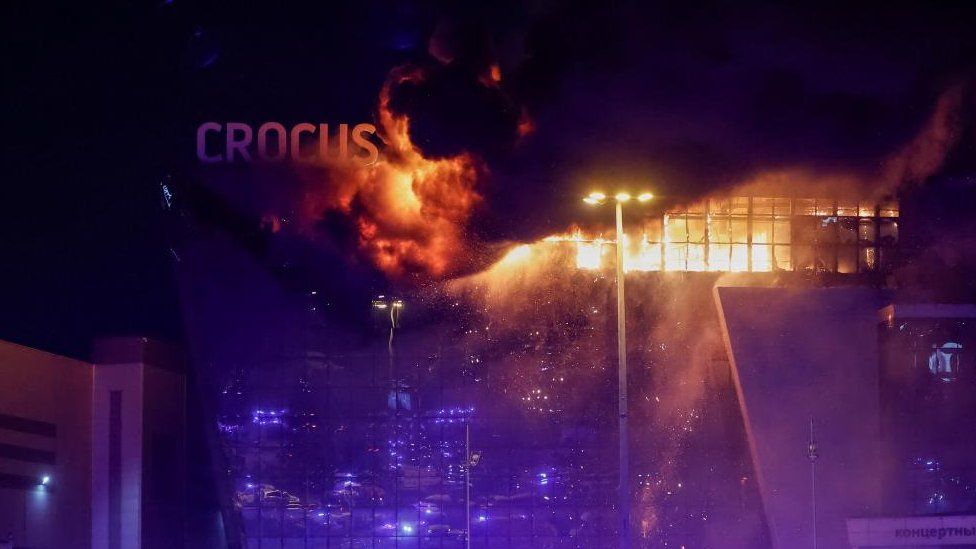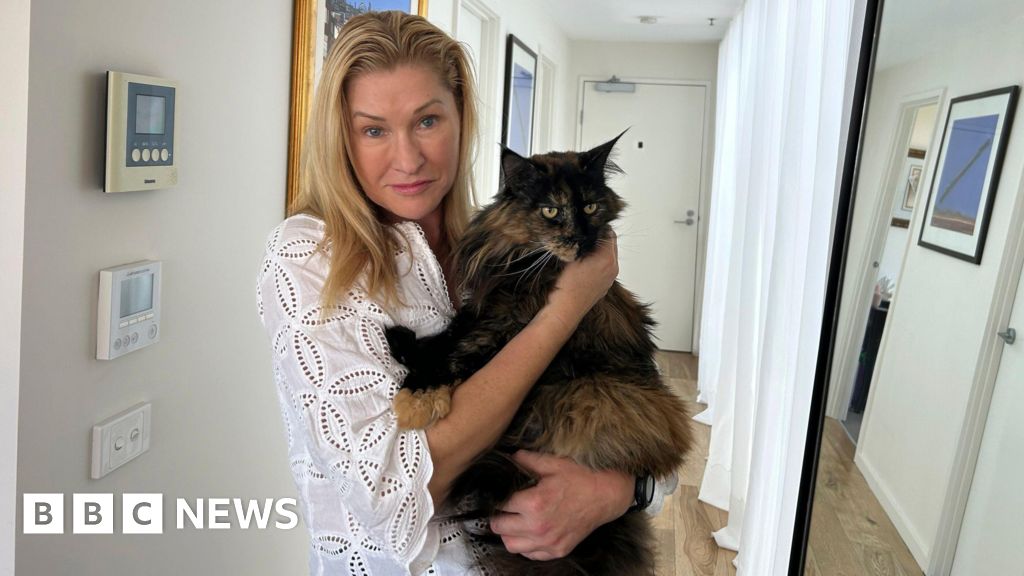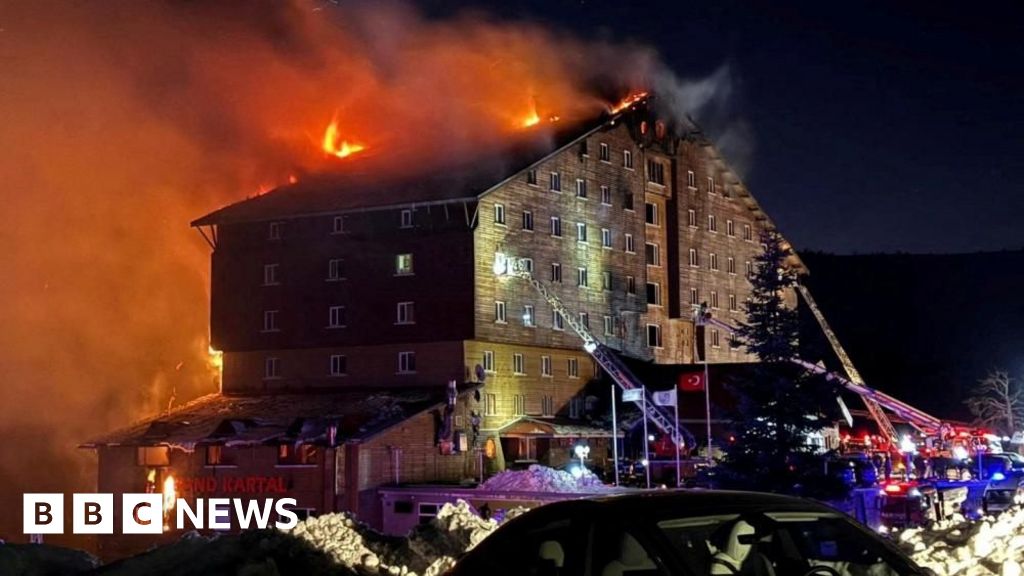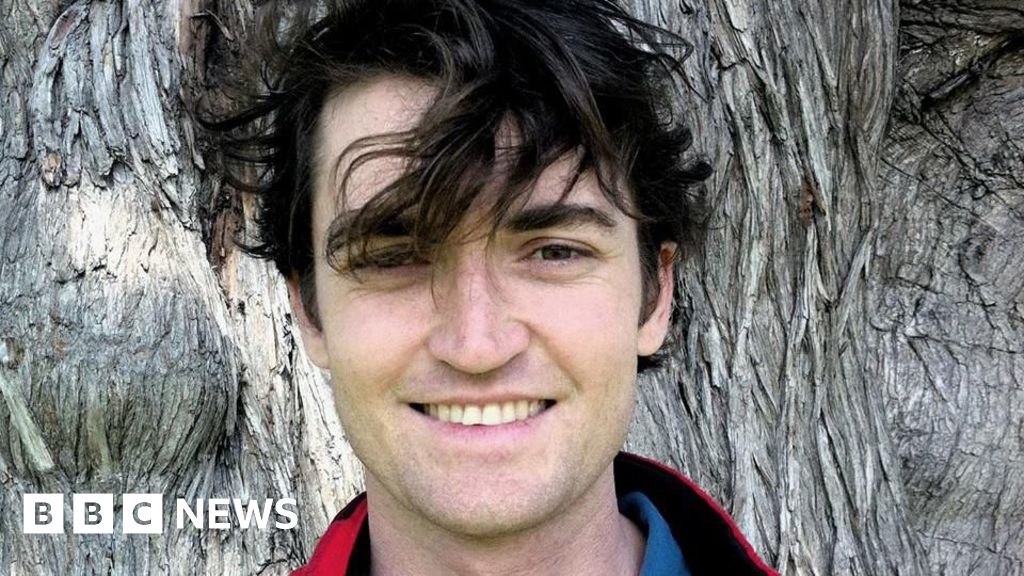ARTICLE AD BOX
 Image source, Reuters
Image source, Reuters
Fire rises above the burning Crocus City Hall concert venue following a shooting
By Gordon Corera
Security correspondent, BBC News
There are always questions after any attack as to why it was not stopped or detected. But the Moscow attack raises particularly difficult issues for Vladimir Putin at a time of international tension and mistrust. And much of that comes because of a warning from Washington.
The 7 March warning from the US to its own citizens was unusually specific. It talked of reports that "extremists" had "imminent plans to target large gatherings in Moscow" and specifically mentioned concerts. It advised Americans in the city to avoid large gatherings over the coming 48 hours.
The timing may not quite match, but other details do tally closely with events on 22 March. It seems clear Washington had some kind of intelligence and that it related to Islamic State (IS) - the group that has issued a statement saying it was behind the Moscow attack.
As well as the public warning to its own citizens, the US also said it had communicated with the Russian government directly.
"The US government also shared this information with Russian authorities in accordance with its long-standing 'duty to warn' policy," a US official said in a statement after the attack.
There are channels through which intelligence is shared between countries - even those that are not allies - especially when it relates to possible attacks on civilians.
But the problem is that Moscow dismissed the warnings.
Three days before the attack, Russian President Vladimir Putin addressed the board of Russia's Federal Security Service (FSB), whose job is to defend the country. The top priority, he told the assembled leaders of the security service, was to support what he called the special military operation - the official phrase for the full-scale invasion of Ukraine.
He claimed that Ukraine had switched to what he called "terrorist tactics". He also spoke directly to what he said were "provocative statements" from the West about potential attacks within Russia. He said the warnings "resemble outright blackmail and the intention to intimidate and destabilise our society".
Image source, EPA
Image caption,President Vladimir Putin addressed Russian citizens following a terrorist attack at the Crocus City Hall concert venue
That suggests that the mistrust between the US and Russia meant Moscow may not have wanted to listen and instead saw the warnings as part of an attempt to threaten Russia, linked to the Ukraine conflict.
We do not yet know the exact nature of the information the US possessed or passed or how clear it was. Intelligence can often be vague and hard to act on.
But the US has a vast intelligence-gathering machine and watches IS closely. The branch suspected of the Moscow attack was also linked to one on US forces and civilians at Kabul airport in August 2021, as well as more recent deadly bombings in Iraq.
But if the intelligence that was shared with Russia was credible and specific about IS, then the FSB and Mr Putin might appear to be on the back foot about why they did not take it more seriously.
And if so, it may be easier for Moscow to relate the attack in some way to Ukraine in order to deflect blame and also build support for Russia's actions there, rather than acknowledge what they might have missed.

 10 months ago
82
10 months ago
82








 English (US) ·
English (US) ·